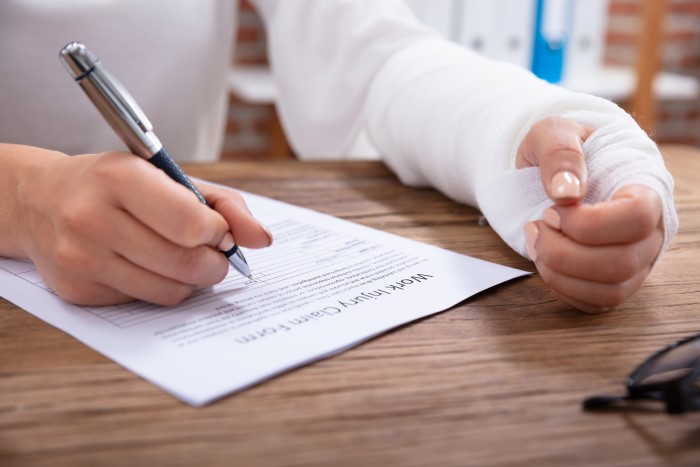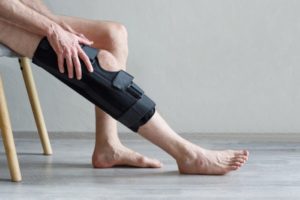
Personal Injury
Are you or a loved one dealing with a personal injury claim? It’s important to know your legal rights and what steps to take to get the compensation you deserve. In this guide, we’ll walk you through everything you need to know about personal injury claims, from understanding what a personal injury is to hiring the right personal injury lawyer and navigating the legal process.
Understanding Personal Injury Claims
Before diving into the legal process of personal injury claims, it’s important to understand what a personal injury is. A personal injury is any physical or emotional harm caused by the negligence or intentional actions of another person or entity. This harm can be caused by a car accident, slip and fall, medical malpractice, or even a defective product.
Types of Personal Injury Claims
There are several different types of personal injury claims, including:
- Car accidents: If you are injured in a car accident due to another driver’s negligence, you may be able to file a personal injury claim.
- Slip and fall accidents: If you slip and fall on someone else’s property due to their negligence, you may be able to file a personal injury claim.
- Medical malpractice: If you are harmed by a healthcare provider’s negligence or omission, you may be able to file a personal injury claim.
- Product liability: If you are injured by a defective product, you may be able to file a personal injury claim against the manufacturer or distributor.
Steps to Take After a Personal Injury
If you or a loved one has suffered a personal injury, there are certain steps you should take to protect your rights and ensure you get the compensation you deserve.
Seeking Medical Attention
The first and most important step is to seek medical attention for your injuries. Even if your injuries seem minor, it’s important to get a professional medical evaluation to document your injuries and ensure you receive appropriate treatment. This documentation will be important evidence in your personal injury claim.
Gathering Evidence
The next step is to gather evidence related to the accident or incident that caused your injury. This evidence may include:
- Police or accident reports
- Witness statements
- Photographs or video of the scene
- Medical records and bills
- Any other documentation related to your injuries and damages
This evidence will be crucial in building your personal injury claim and proving the other party’s negligence.
Hiring a Personal Injury Lawyer
While it’s possible to file a personal injury claim on your own, it’s highly recommended to hire a personal injury lawyer. A lawyer can help you navigate the legal process, negotiate with insurance companies, and ensure you receive the maximum compensation possible for your injuries and damages.
Some of the benefits of hiring a personal injury lawyer include:
- Experience and knowledge of personal injury law
- Access to expert witnesses and resources to build your case
- Negotiating power with insurance companies
- Ability to take your case to trial if necessary
How to Choose the Right Lawyer
When choosing a personal injury lawyer, it’s important to look for someone with experience in handling cases similar to yours, a good reputation, and a track record of successful settlements and verdicts. You should also look for a lawyer who offers a free consultation and works on a contingency fee basis, which means they only get paid if you win your case.
The Legal Process for Personal Injury Claims
Filing a Claim
Once you’ve hired a personal injury lawyer, the next step is to file a personal injury claim. Your lawyer will work with you to gather all the necessary evidence and documentation and submit a demand letter to the other party’s insurance company. This demand letter will outline your injuries, damages, and the amount of compensation you are seeking.
Negotiating a Settlement
The insurance company will then investigate the claim and either accept or deny liability. If liability is accepted, they will make an initial settlement offer. Your lawyer will review the offer and negotiate with the insurance company to ensure you receive the maximum compensation possible. If a settlement cannot be reached, your lawyer may take your case to trial.
Going to Trial
When negotiations fail, and a settlement cannot be reached between your lawyer and the insurance company, your case may go to trial. Going to trial means that your case will be presented to a judge and possibly a jury. The process can be lengthy and stressful, but your lawyer will guide you through every step of the way.
During a trial, both parties will present evidence and witnesses to support their case. Your lawyer will argue on your behalf, trying to prove that the other party was at fault and caused your injuries. The insurance company’s lawyers will try to prove that their client was not responsible for your injuries, or that your injuries were not as severe as you claim.
After both sides have presented their cases, the judge or jury will deliberate and make a decision. If the decision is in your favor, the court will award you compensation for your injuries and damages. If the decision is not in your favor, your lawyer may appeal the decision or explore other legal options.
It’s important to remember that going to trial is not always the best option for every case. Your lawyer will carefully evaluate your case and advise you on the best course of action. While trials can be stressful and uncertain, they can also provide the opportunity to receive the maximum compensation possible for your injuries.
Dealing with a personal injury claim can be overwhelming, but understanding your legal rights and hiring the right personal injury lawyer can make all the difference. By following the steps outlined in this guide, you can ensure you receive the compensation you deserve for your injuries and damages. Remember to seek medical attention, gather evidence, hire a personal injury lawyer, and navigate the legal process with confidence.







